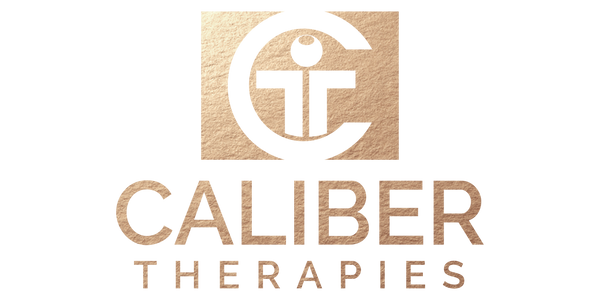
Who Are Recreational Therapists? Complete Guide to Therapeutic Recreation Specialists
Share
When exploring healthcare and rehabilitation options, many families encounter the term "recreational therapist" but may not fully understand who these professionals are or what they do. Recreational therapists, also known as Therapeutic Recreation Specialists, are highly trained healthcare professionals who use evidence-based recreational activities and interventions to help individuals improve their physical, cognitive, emotional, and social functioning.
This comprehensive guide will explore what recreational therapists do, their educational requirements, professional qualifications, work settings, and how these specialized healthcare providers can make a significant difference in the lives of individuals with various conditions and their families. Whether you're considering a recreational therapist career or seeking to understand how these professionals can help your loved one, this guide provides essential information about the recreational therapy profession.
What is a Recreational Therapist?
A recreational therapist is a licensed healthcare professional who provides therapeutic recreation services using purposeful recreation and experiential activities to help individuals with illnesses, disabilities, or other conditions improve their overall functioning and quality of life. Unlike general recreation specialists who focus primarily on leisure and enjoyment, recreational therapists are trained medical professionals who use activities as therapeutic interventions to achieve specific, measurable health outcomes.
Recreational therapists work as integral members of interdisciplinary healthcare teams, collaborating with physicians, nurses, physical therapists, occupational therapists, speech-language pathologists, social workers, and psychologists. They assess patients' needs, develop individualized treatment plans, implement evidence-based interventions, and continuously monitor progress toward therapeutic goals.
The primary distinction between recreational therapists and other recreation professionals lies in their clinical training, healthcare focus, and ability to provide medical treatment through recreational activities. Therapeutic Recreation Specialists are qualified to work in medical settings, document treatment outcomes, and bill insurance companies for their services as healthcare providers.
Educational Requirements for Recreational Therapists
Becoming a recreational therapist requires extensive education and training in both healthcare and recreation sciences. The recreational therapist education pathway typically includes:
Bachelor's Degree Requirements: Most recreational therapists hold a bachelor's degree in recreational therapy, therapeutic recreation, or a closely related field such as psychology, kinesiology, or health sciences. Recreational therapy programs must be accredited and include coursework in human anatomy and physiology, abnormal psychology, medical and psychiatric conditions, group dynamics, activity analysis and adaptation, assessment techniques, treatment planning, and research methods.
Clinical Internship Experience: All recreational therapy students must complete a minimum of 480 hours of supervised clinical internship experience in approved healthcare settings. This hands-on training allows students to apply theoretical knowledge in real-world clinical environments under the supervision of experienced Certified Therapeutic Recreation Specialists.
Advanced Education Options: Many recreational therapists pursue master's degrees in recreational therapy, rehabilitation counseling, or related fields to specialize in specific populations or advance to leadership positions. Some recreational therapy professionals also pursue doctoral degrees for research, education, or executive roles.
Continuing Education Requirements: Licensed recreational therapists must complete ongoing continuing education to maintain their certifications and stay current with best practices, new research findings, and emerging treatment approaches in the field.
Certification and Licensing for Recreational Therapists
Professional recreational therapist credentials are essential for practice in healthcare settings. The certification and licensing process includes:
National Certification Examination: After completing their education and internship requirements, aspiring recreational therapists must pass the National Council for Therapeutic Recreation Certification (NCTRC) examination to become Certified Therapeutic Recreation Specialists (CTRS). This comprehensive exam tests knowledge in assessment, treatment planning, implementation, evaluation, and professional practice standards.
State Licensing Requirements: Many states require recreational therapists to obtain state licenses to practice in healthcare settings. Licensing requirements vary by state but typically include completing an approved education program, passing the national certification exam, and meeting continuing education requirements.
Professional Membership and Standards: Many recreational therapists maintain membership in professional organizations such as the American Therapeutic Recreation Association (ATRA) or the National Therapeutic Recreation Society (NTRS), which provide ongoing education, professional standards, and advocacy for the profession.
Specialty Certifications: Experienced recreational therapists may pursue additional specialty certifications in areas such as adaptive sports, aquatic therapy, assistive technology, or specific clinical populations to enhance their expertise and career opportunities.
What Do Recreational Therapists Do?
Recreational therapist duties are diverse and comprehensive, encompassing various aspects of patient care and treatment:
Patient Assessment and Evaluation: Recreational therapists conduct thorough assessments to evaluate patients' physical, cognitive, emotional, and social functioning levels. They use standardized assessment tools, clinical observations, interviews, and medical record reviews to understand each individual's strengths, challenges, interests, and therapeutic needs.
Treatment Planning and Goal Setting: Based on assessment results, recreational therapists develop individualized treatment plans with specific, measurable, achievable, relevant, and time-bound goals. These plans are coordinated with other healthcare team members to ensure comprehensive, integrated care.
Implementation of Therapeutic Interventions: Recreational therapists lead individual and group therapy sessions using various activities such as adaptive sports, creative arts, music therapy, outdoor adventures, social skills training, cognitive rehabilitation activities, and community integration programs. Each activity is carefully selected and modified to address specific therapeutic objectives.
Progress Monitoring and Documentation: Therapeutic recreation specialists continuously monitor patient progress, document treatment outcomes, adjust interventions as needed, and communicate results with interdisciplinary team members, patients, and families.
Family Education and Support: Recreational therapists educate families about therapeutic techniques, provide resources for continued progress at home, and help families understand how to support their loved one's therapeutic goals.
Discharge Planning and Community Integration: Recreational therapists help patients transition from clinical settings to community environments by connecting them with appropriate community recreation programs, adaptive sports leagues, and ongoing support services.
Recreational Therapist Work Settings
Recreational therapists work in diverse healthcare and community settings, providing services across the continuum of care:
Hospital and Medical Centers: Many recreational therapists work in acute care hospitals, providing services to patients recovering from surgery, managing chronic conditions, or dealing with sudden-onset illnesses. They help patients maintain or regain functional abilities during hospitalization.
Rehabilitation Facilities: Inpatient and outpatient rehabilitation centers employ recreational therapists to help individuals recovering from strokes, traumatic brain injuries, spinal cord injuries, amputations, and other conditions that require intensive rehabilitation services.
Mental Health Settings: Psychiatric hospitals, behavioral health centers, and mental health clinics utilize recreational therapists to provide therapeutic activities that support mental health recovery, develop coping skills, and improve social functioning.
Long-term Care and Skilled Nursing: Nursing homes, assisted living facilities, and skilled nursing facilities employ recreational therapists to enhance quality of life for residents, maintain cognitive function, and provide meaningful activities that promote social engagement.
Pediatric Settings: Children's hospitals, pediatric rehabilitation centers, and special education programs employ recreational therapists who specialize in working with children and adolescents with various developmental, physical, and behavioral conditions.
Community-Based Programs: Many recreational therapists work in community recreation centers, disability service organizations, adaptive sports programs, and nonprofit agencies that provide services to individuals with disabilities.
Private Practice: Some experienced recreational therapists operate private practices, providing specialized services, consulting, and program development for healthcare facilities, schools, and community organizations.
Skills and Qualities of Effective Recreational Therapists
Successful recreational therapists possess a unique combination of clinical knowledge, interpersonal skills, and creative abilities:
Clinical and Technical Skills: Recreational therapists must have strong knowledge of medical conditions, understanding of human anatomy and physiology, assessment and documentation skills, treatment planning abilities, and familiarity with adaptive equipment and assistive technology.
Interpersonal and Communication Skills: Effective recreational therapists demonstrate excellent communication skills, empathy and compassion, patience and understanding, ability to motivate and encourage others, and strong teamwork and collaboration abilities.
Creative and Problem-Solving Skills: Recreational therapists need creativity and innovation in activity planning, problem-solving abilities for adapting activities, flexibility and adaptability, and leadership skills for group activities.
Professional Qualities: Successful recreational therapists maintain professional boundaries, demonstrate cultural sensitivity, show commitment to ongoing learning, practice ethical decision-making, and exhibit strong organizational and time management skills.
Specializations in Recreational Therapy
Recreational therapists can specialize in various areas to focus their expertise:
Clinical Specializations: Some recreational therapists specialize in specific conditions such as traumatic brain injury, spinal cord injury, mental health disorders, substance abuse recovery, autism spectrum disorders, or pediatric conditions.
Population Specializations: Recreational therapists may focus on specific age groups such as pediatric recreational therapy, adult rehabilitation, or geriatric services, developing specialized knowledge and skills for these populations.
Setting Specializations: Some recreational therapists specialize in specific work environments such as acute care, long-term care, community integration, or adaptive sports programs.
Activity Specializations: Recreational therapists may develop expertise in specific therapeutic modalities such as aquatic therapy, animal-assisted therapy, adventure therapy, creative arts therapy, or assistive technology applications.
How Recreational Therapists Impact Patient Outcomes
Recreational therapists make significant contributions to patient care and recovery:
Physical Health Improvements: Through carefully designed physical activities and exercises, recreational therapists help patients improve strength, endurance, coordination, balance, and overall physical functioning.
Cognitive Enhancement: Recreational therapists use cognitive stimulation activities, memory exercises, and problem-solving games to help patients maintain or improve cognitive function, attention, and executive skills.
Emotional and Mental Health Support: Recreational therapists provide supportive environments for emotional expression, stress reduction, mood improvement, and development of healthy coping strategies.
Social Skills Development: Group activities and social interaction opportunities led by recreational therapists help patients develop communication skills, build relationships, and reduce social isolation.
Quality of Life Enhancement: By focusing on meaningful activities and personal interests, recreational therapists help patients rediscover joy, purpose, and life satisfaction, significantly improving overall quality of life.
Working with Other Healthcare Professionals
Recreational therapists function as integral members of interdisciplinary healthcare teams:
Collaboration with Medical Staff: Recreational therapists work closely with physicians, nurses, and other medical professionals to ensure that therapeutic activities align with medical treatment plans and safety requirements.
Coordination with Rehabilitation Team: Recreational therapists collaborate with physical therapists, occupational therapists, and speech-language pathologists to provide comprehensive rehabilitation services that address all aspects of patient functioning.
Integration with Mental Health Services: Recreational therapists work with psychologists, social workers, and counselors to support mental health goals and provide complementary therapeutic interventions.
Family and Caregiver Involvement: Recreational therapists educate and involve family members and caregivers in treatment processes, helping them understand how to support continued progress at home and in the community.
The Future of Recreational Therapy
The recreational therapy profession continues to evolve and expand:
Emerging Areas of Practice: Recreational therapists are increasingly working in new settings such as wellness centers, corporate wellness programs, veterans' services, and telehealth applications.
Technology Integration: New technologies are being incorporated into recreational therapy practice, including virtual reality, adaptive gaming, and assistive devices that enhance treatment options.
Research and Evidence-Based Practice: The recreational therapy field is increasingly emphasizing research and evidence-based practice to demonstrate effectiveness and improve treatment outcomes.
Professional Recognition: Recreational therapists are gaining increased recognition as essential healthcare providers, leading to expanded opportunities and improved professional status.
The Impact of Recreational Therapists
Recreational therapists are specialized healthcare professionals who play crucial roles in helping individuals recover from illness, manage disabilities, and improve their overall quality of life. Through their unique combination of clinical expertise, creative problem-solving, and compassionate care, recreational therapists provide essential services that complement traditional medical treatments and support holistic healing.
For individuals considering a recreational therapist career, the profession offers the opportunity to make meaningful differences in people's lives while working in diverse, dynamic healthcare environments. The combination of clinical knowledge, creative application, and direct patient interaction makes recreational therapy a rewarding and impactful healthcare profession.
For families seeking services, understanding the role and qualifications of recreational therapists can help in making informed decisions about treatment options and finding qualified professionals who can provide effective, evidence-based interventions. Recreational therapists bring unique skills and perspectives to healthcare teams, offering hope, healing, and improved quality of life through the power of therapeutic recreation.
As healthcare continues to evolve toward more holistic, person-centered approaches, recreational therapists will continue to play increasingly important roles in helping individuals achieve their highest levels of functioning, independence, and life satisfaction. The recreational therapy profession represents a vital component of comprehensive healthcare that recognizes the importance of joy, meaning, and engagement in the healing process.
